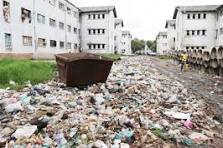Cholera Outbreak in Zimbabwe Spreads to Eight Districts: Southerton and Harare South at High Risk
- Southerton Business Times

- Jul 16, 2025
- 3 min read
Updated: Jul 17, 2025

A worsening cholera outbreak in Zimbabwe has now spread to at least eight districts, prompting health authorities to issue an urgent public health warning—particularly for residents in Southerton constituency and Harare South, where poor sanitation infrastructure and limited access to clean water heighten the risk of infection. According to the Ministry of Health and Child Care (MoHCC), as of late May 2025, there have been over 550 confirmed cholera cases and 17 related deaths. The outbreak originated in Kariba District in November 2024, but has since expanded rapidly, affecting both rural and peri-urban areas.
Districts Affected and High-Risk Zones
The outbreak is now confirmed in:
Bikita
Bindura
Chiredzi
Chipinge
Kariba
Goromonzi
Mazowe
Shamva
Mazowe district, in particular, has emerged as a cholera hotspot. In the farming town of Glendale, residents are exposed to sewage-contaminated pools due to burst water pipes left unrepaired for months. These conditions have resulted in the contamination of freshwater sources and rising cases of illness, including among children.
Urgent Warning for Harare South and Southerton
Residents of Southerton and Harare South are being urged to take immediate preventive action, as both areas have long struggled with unreliable sanitation systems, informal settlements, and sporadic access to clean water—all risk factors that facilitate cholera transmission.
“Communities in high-risk areas such as Southerton and Harare South must prioritize hygiene, use treated or boiled water, and avoid eating street food or raw vegetables that may be contaminated,” warned Dr. Wenceslaus Nyamayaro, Acting Chief Director for Public Health.
Symptoms, Risk Factors, and Urgent Action
Cholera, a bacterial disease spread primarily through contaminated water and food, can lead to severe diarrhoea, vomiting, and dehydration—potentially fatal if untreated.
Key symptoms to watch for:
Sudden onset of watery diarrhoea
Vomiting
Muscle cramps
Signs of severe dehydration
Those experiencing symptoms should seek immediate medical care at the nearest clinic or Oral Rehydration Point (ORP).
Government and Partner Response
The MoHCC, supported by WHO, UNICEF, and other partners, has intensified outbreak control measures by:
Establishing Cholera Treatment Centers (CTCs) in Mazowe, Shamva, and other districts
Training health workers in infection prevention, case management, and community engagement
Distributing oral rehydration solutions (ORS) and water purification tablets
However, logistical challenges and limited resources continue to impede rapid response in rural and artisanal mining areas.
“Delays in seeking care—especially among gold panners—have contributed to preventable deaths. Funding and transport barriers also limit how quickly we can scale response in remote locations,” said a field health officer.
Public Outcry and Infrastructure Failures
In Glendale, Mazowe district, residents voiced growing frustration at inaction from local authorities over unrepaired sewage pipes.
“We are forced to walk through pools of human waste daily. Children are falling sick, and we fear the outbreak will worsen if nothing is done,” said one concerned resident.
Similar conditions exist in informal settlements in Harare South and Southerton, where latrines are scarce, and water supply is often interrupted or unsafe.
Public health experts have emphasized that infrastructure repair, clean water provision, and community hygiene education are critical to preventing a further spike in cases.
Preventive Measures for Residents
To protect against cholera, the Ministry of Health advises:
Drink only treated, boiled, or bottled water
Wash hands regularly with soap, especially before eating or preparing food
Avoid street food and raw vegetables
Use pit latrines or toilets—never defecate in open areas
Report diarrhoeal symptoms immediately to health workers
Conclusion
The 2025 cholera outbreak underscores the urgent need for investment in sanitation infrastructure, clean water systems, and community health education—especially in under-resourced areas like Harare South.
As the Ministry of Health continues surveillance and emergency response, public cooperation remains the most vital tool in halting the spread.





Comments